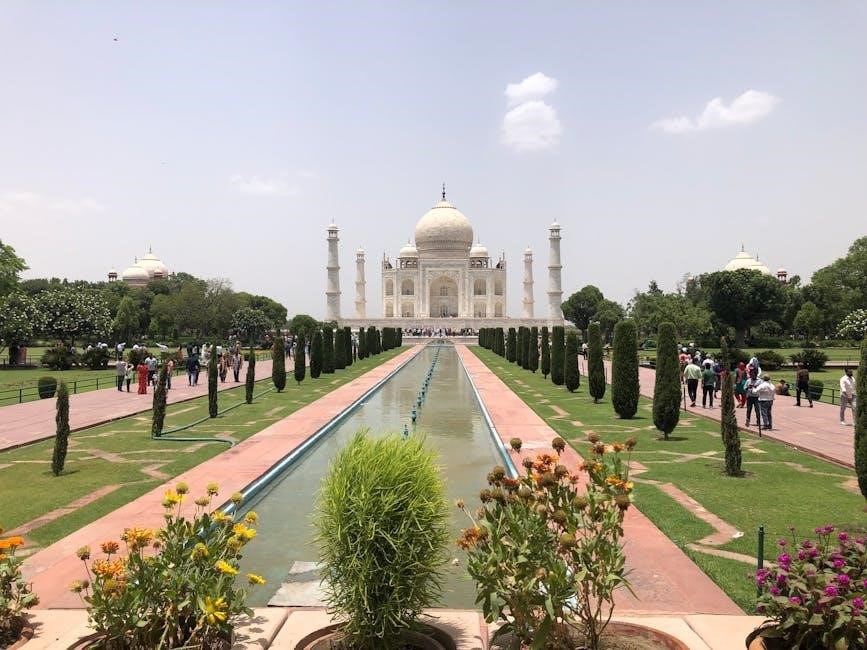
World history explores the collective human past, analyzing cultural, social, and political developments across time and regions. It connects diverse cultures, linking past and present events.
1.1. Definition and Scope of World History
World history is the systematic study of the past on a global scale, examining human experiences across regions and time. It explores cultural, social, and political developments, connecting diverse civilizations. The scope encompasses all regions, from ancient times to the present, analyzing patterns, interactions, and transformations. It is an interdisciplinary field, drawing from anthropology, sociology, and economics, to understand the complexities of human societies and their global interconnections.
1.2. Importance of Studying World History
Studying world history fosters global understanding, revealing how past events shape modern societies. It enhances critical thinking by analyzing diverse perspectives and interconnectedness. By exploring cultural, social, and political developments, it promotes empathy and informed decision-making. Understanding historical patterns aids in addressing contemporary challenges, while appreciating achievements and learning from mistakes. It equips individuals to navigate an increasingly interconnected world with insight and awareness.
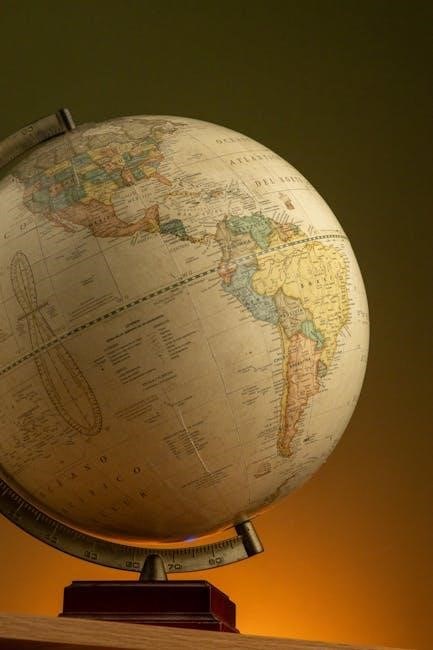
Ancient Civilizations
Ancient civilizations laid the foundation for modern society, fostering advancements in culture, technology, and governance. Their legacies continue to influence global development and human progress significantly today.
2.1. Mesopotamia: The Cradle of Civilization
Mesopotamia, known as the “Cradle of Civilization,” was a region in modern-day Iraq where some of the earliest cities, such as Ur and Babylon, flourished. The Sumerians, Akkadians, Babylonians, and Assyrians developed advanced systems of writing (cuneiform), governance, and agriculture. The Code of Hammurabi, one of the earliest legal codes, emerged from this region. Mesopotamia’s innovations in mathematics, astronomy, and architecture laid the groundwork for future civilizations, making it a cornerstone of human progress and development.
2.2. Ancient Egypt: Pyramids and Pharaohs
Ancient Egypt, centered along the Nile River, was a cornerstone of early civilization. Known for its monumental pyramids, which served as tombs for pharaohs, Egypt developed a complex society governed by divine rulers. Innovations in mummification, hieroglyphic writing, and architecture defined their culture. The Great Pyramid of Giza, built for Pharaoh Khufu, and the reign of Pharaoh Sneferu exemplify their engineering prowess and religious beliefs, showcasing Egypt’s enduring legacy in human history and archaeology.
2;3. The Indus Valley Civilization
The Indus Valley Civilization, flourishing around 3300–1300 BCE, was a Bronze Age society in modern-day Pakistan and northwest India. Known for advanced urban planning, its cities like Harappa and Mohenjo-Daro featured grid layouts, drainage systems, and standardized architecture. Trade networks extended across regions, and their script remains undeciphered. This civilization is celebrated for its craftsmanship in pottery, seals, and jewelry, reflecting a sophisticated culture. Its decline by 1300 BCE remains a subject of historical inquiry, possibly linked to environmental changes or migrations.
2.4. Early Chinese Civilizations
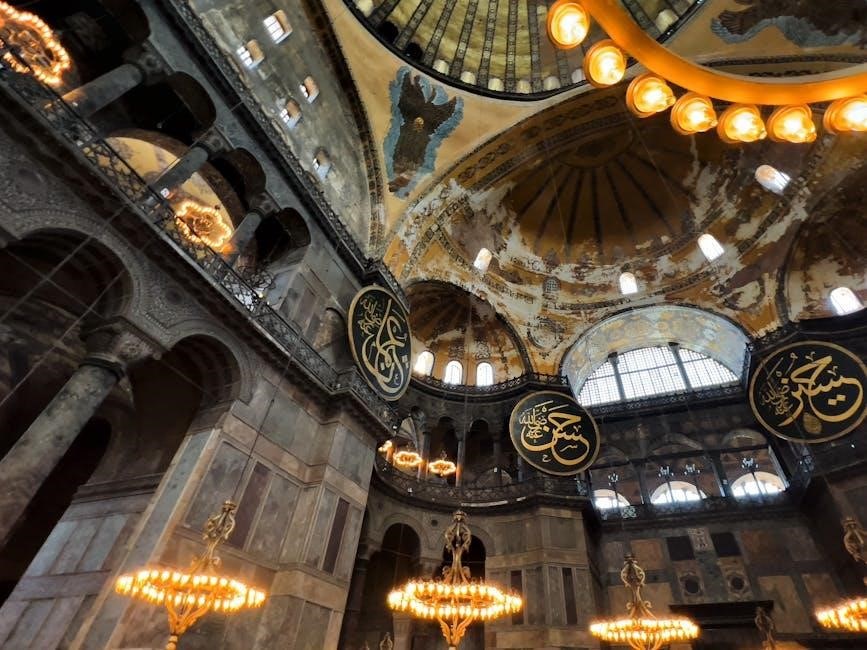
The Shang Dynasty (16th–11th centuries BCE) is known for its bronze technology and oracle bones, early Chinese inscriptions. The Zhou Dynasty (1046–256 BCE) introduced the Mandate of Heaven, legitimizing royal rule. The Qin Dynasty (221–206 BCE) unified warring states, standardized systems, and began the Great Wall of China. The Han Dynasty (206 BCE–220 CE) saw cultural flourishing, territorial expansion, and Confucianism as state philosophy. These civilizations laid the foundation for China’s rich cultural and political heritage.

The Classical Period
The Classical Period, spanning Ancient Greece and Rome, laid the groundwork for Western civilization through philosophy, democracy, theater, and law, shaping cultural and political foundations.
3.1. Ancient Greece: Philosophy and Democracy
Ancient Greece was a cornerstone of Western civilization, renowned for its philosophical advancements. Socrates, Plato, and Aristotle laid the foundation for Western thought, exploring ethics, metaphysics, and logic. Democracy emerged in Athens, providing a framework for governance and citizen participation. Greek theater, with its tragedies and comedies, influenced cultural expression. The Olympic Games and artistic achievements showcased Greek ideals of excellence. This period shaped intellectual and political traditions, leaving a lasting legacy on modern societies and governance systems worldwide.
3.2. The Roman Empire: Law and Governance
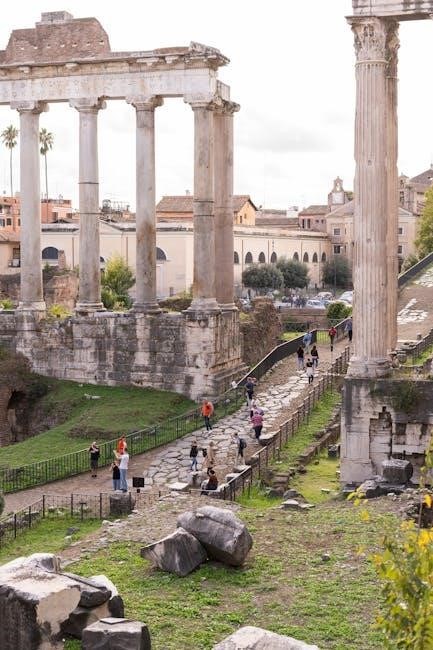
The Roman Empire established a sophisticated legal system, codified in the Twelve Tables and later refined in the Corpus Juris Civilis. Roman law emphasized justice, equality, and contractual obligations, shaping modern legal systems. The empire’s governance evolved from a republic to an imperial system, with emperors holding centralized power. Provincial administration ensured stability, and infrastructure projects like roads and aqueducts facilitated trade and urbanization. Roman law and governance laid the foundation for many contemporary political and legal frameworks, influencing global systems for centuries.
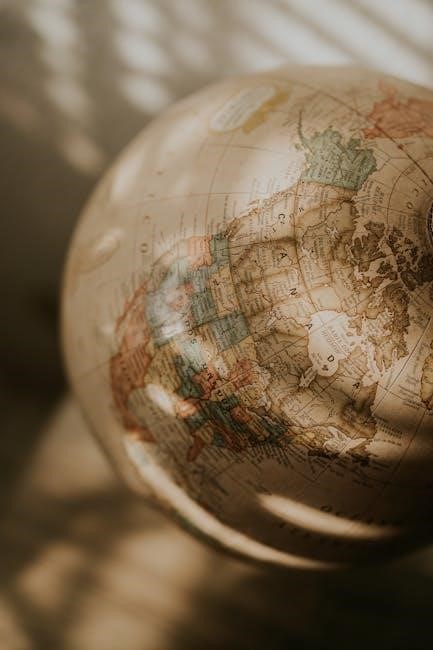
The Middle Ages
The Middle Ages spanned from the 5th to the 15th century, marked by the rise of Christianity, feudalism, and the Islamic Golden Age, shaping medieval culture globally.
4.1. The Rise of Christianity
Christianity emerged in the 1st century AD, spreading rapidly across the Roman Empire despite early persecution. The faith gained momentum after Emperor Constantine’s conversion in 313 AD, becoming the empire’s official religion. Missionaries and monasteries played key roles in disseminating Christian teachings; Theological debates and councils, like Nicaea, shaped doctrine. By the 5th century, Christianity dominated Europe, influencing art, culture, and society, establishing the Catholic Church as a central authority, and laying the foundation for medieval Europe’s religious identity.
4.2. The Islamic Golden Age
The Islamic Golden Age (8th–14th centuries) was a period of profound cultural, scientific, and philosophical advancement. Scholars like Al-Khwarizmi, Ibn Sina, and Al-Biruni made groundbreaking contributions to mathematics, medicine, and astronomy. The translation of Greek and Roman texts into Arabic preserved ancient knowledge, influencing later European Renaissance. This era also saw advancements in art, architecture, and literature, with Islamic calligraphy and poetry flourishing. It laid the foundation for modern science and fostered cross-cultural exchange, shaping global intellectual history.
4.3. Feudalism in Europe
Feudalism in Europe was a social and political system that emerged during the Middle Ages, characterized by a hierarchical structure where lords owned land and peasants provided labor. The system was based on mutual obligations: lords offered protection, while vassals provided military service and labor. The economy was primarily agrarian, with the manorial system dominating. Feudalism began to decline with the Black Death, which led to labor shortages and social change, and the rise of a cash economy and centralized states.
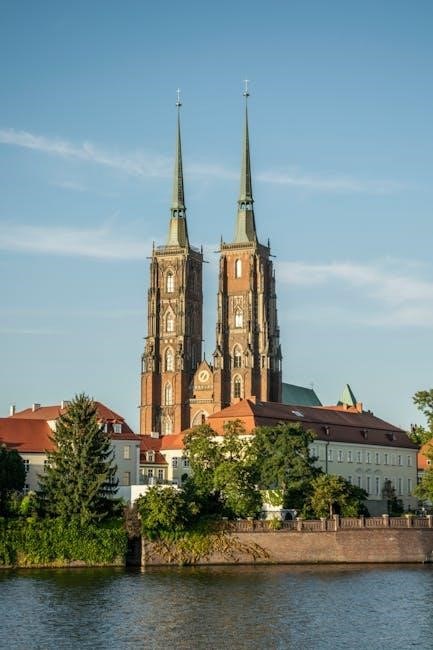
The Age of Exploration and Colonization
The Age of Exploration and Colonization, spanning the 15th to 17th centuries, saw European voyages, the discovery of new lands, and the exchange of goods, cultures, and ideas.
5.1. European Voyages of Discovery
The European Voyages of Discovery, led by explorers like Columbus, Vasco da Gama, and Magellan, marked a pivotal era of global exploration. Motivated by the quest for new trade routes, wealth, and the spread of Christianity, these voyages connected Europe to the Americas, Africa, and Asia. The discovery of the New World and the establishment of sea routes transformed global commerce and cultural exchange, while also leading to the transfer of goods, ideas, and diseases between continents, reshaping the world forever.
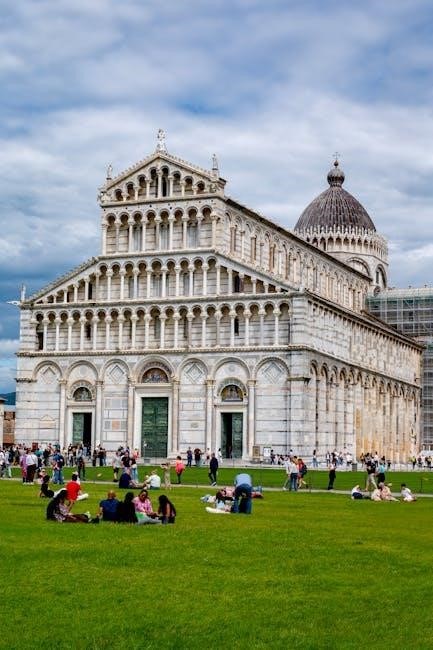
5.2. The Impact of Colonization on Indigenous Peoples
Colonization had profound effects on indigenous populations worldwide. Displacement, cultural suppression, and social disruption were common outcomes. Indigenous peoples faced loss of land, forced assimilation, and exploitation, leading to significant population decline and cultural erasure. Resistance and resilience were evident as communities fought to preserve their identities. The legacy of colonization continues to shape modern challenges for indigenous groups, emphasizing the need for reconciliation and recognition of their rights and contributions to global history.
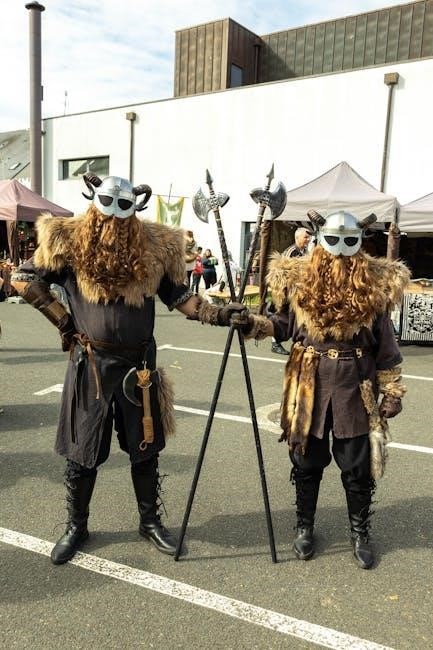
The Modern Era
The Modern Era, spanning from the late 18th century, is marked by industrialization, World Wars, and ideological conflicts, shaping global politics, economies, and societies profoundly.
6.1. The Industrial Revolution
The Industrial Revolution was a transformative period in world history, beginning in the late 18th century. It marked the shift from manual production to machines, driven by steam power and technological innovations. This era saw the rise of factories, mass production, and urbanization, significantly altering economies and societies globally. New industries emerged, and the development of railways and telegraphs revolutionized transportation and communication, laying the foundation for modern industrialized society.
6.2. World Wars and Their Consequences
World Wars I and II were pivotal events in the 20th century, reshaping global politics, economies, and societies. Both conflicts arose from nationalism, imperialism, and militarism. The wars caused unprecedented destruction, massive casualties, and economic devastation. The Treaty of Versailles after WWI sowed seeds for WWII, while the Holocaust remains a grim reminder of humanity’s darkest hour. Post-WWII, the world entered the Cold War, with the formation of the United Nations aiming to prevent future conflicts. These wars profoundly impacted global power dynamics, fostering decolonization and shaping modern international relations.
6.3. The Cold War and Its Legacy
The Cold War (1947–1991) was a geopolitical rivalry between the United States and the Soviet Union, driven by ideological, political, and economic differences. It featured proxy wars, espionage, and an arms race, culminating in events like the Cuban Missile Crisis. The collapse of the USSR in 1991 marked its end, leaving a legacy of nuclear deterrence, globalization, and the rise of the United States as a sole superpower, shaping modern international relations and global security frameworks.
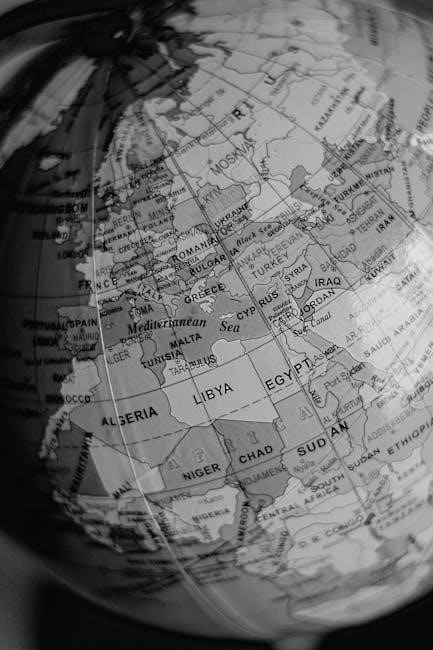
Contemporary World History
Contemporary world history examines recent global transformations, including technological innovations, shifting economic powers, and the impact of pandemics on international relations and societal structures worldwide.
7.1. Globalization and Its Effects
Globalization has profoundly shaped the modern world by fostering economic interdependence, cultural exchange, and technological advancements. It has driven the integration of global markets, facilitated international trade, and promoted cultural homogenization. However, it has also exacerbated inequalities, environmental challenges, and cultural conflicts. The digital revolution and multinational corporations have been key drivers, creating both opportunities and complexities. As globalization continues to evolve, it remains a central force in shaping contemporary societies and economies worldwide.
7.2. Modern Conflicts and International Relations
Modern conflicts often stem from political, economic, and cultural tensions, shaped by globalization and historical legacies. International relations aim to mitigate these issues through diplomacy, alliances, and organizations like the United Nations. However, challenges such as territorial disputes, resource competition, and ideological differences persist. The rise of multinational corporations and digital connectivity has further complicated global dynamics, requiring innovative solutions to ensure stability and cooperation in an increasingly interconnected world.